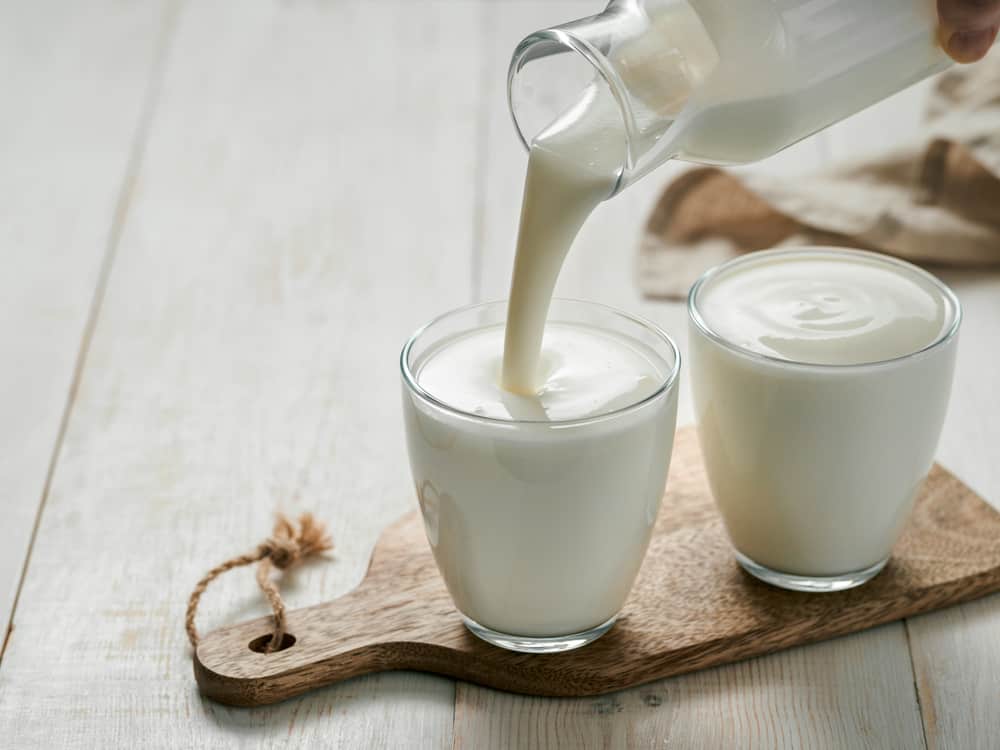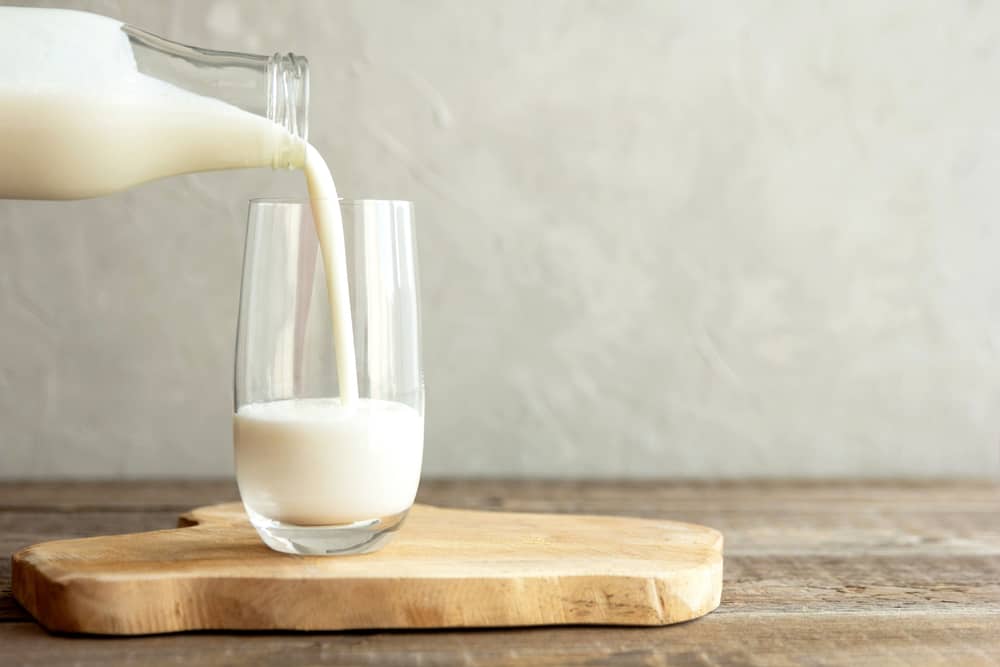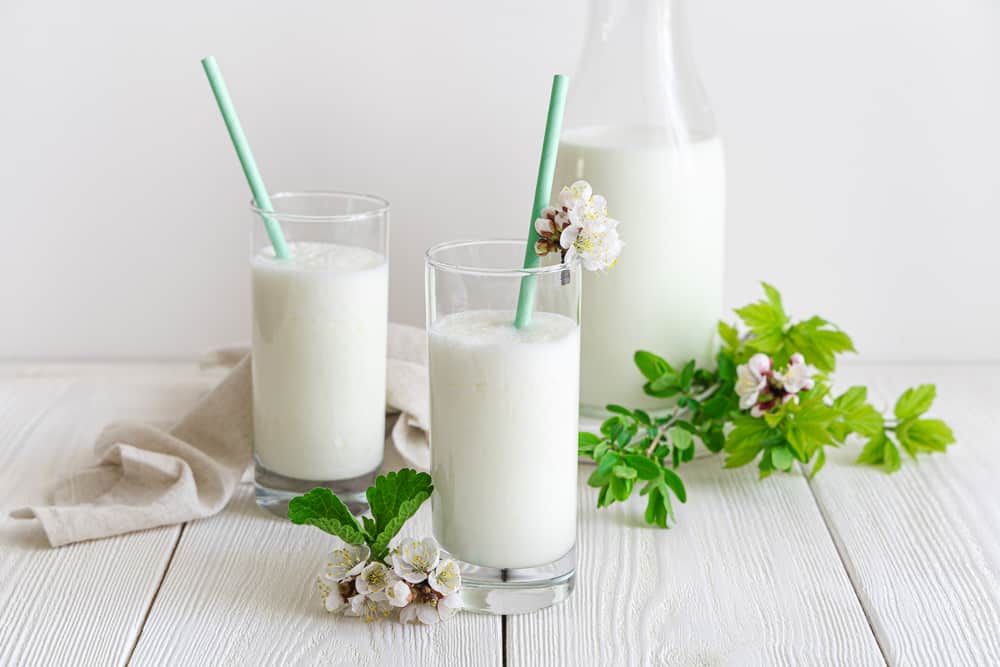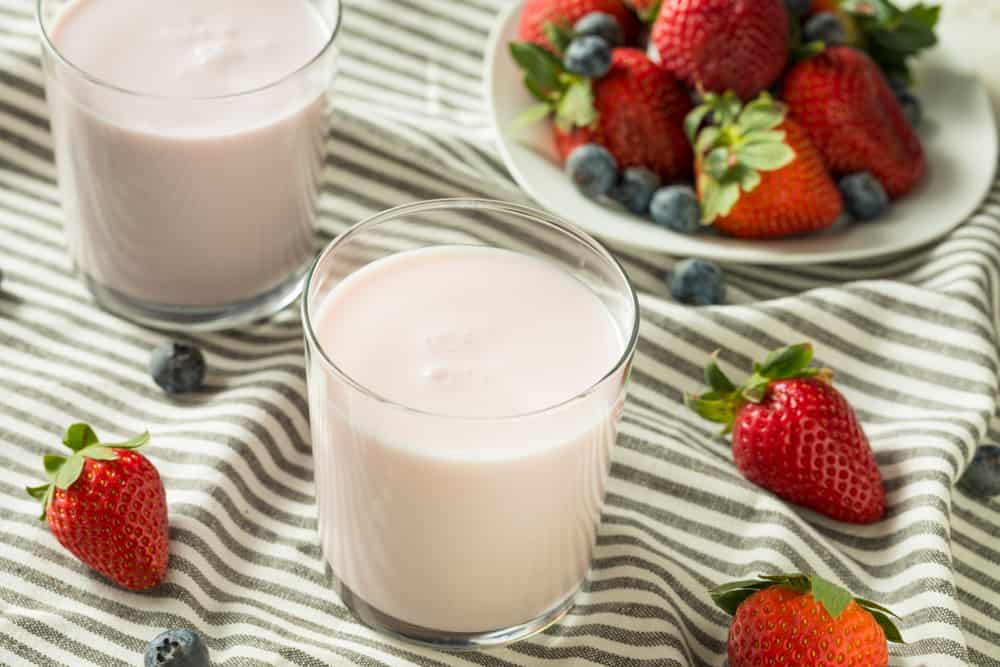
Kefir is a fermented milk product with a hint of alcohol (usually between 0.5-2%) and can be drunk in several ways or eaten by adding it to a dessert instead of yogurt/milk. Kefir has been traditionally used to preserve milk as it elongates its shelf-life and traces its origin back to Eastern Europe.
Kefir is a superfood with many benefits. Unlike artificially synthesized products, it does not pose any health risks unless you have a health condition or do not know how to drink it. So, here we are to learn how to drink kefir?
You need to start on kefir slowly if you are new to it, or it may cause side effects. Start with a one or two tablespoon intake, and gradually increase it until you reach the recommended amount of nearly a cup. Also, avoid heating it or adding hot additives to it.
This article will discuss different ways to drink kefir, the best time to consume it, things to avoid when drinking kefir, and the health benefits of kefir. So, here we go.
Different Ways To Drink Kefir

There are various methods to eat and drink kefir. You can add it to your desserts or bake with it, but you can also drink it in several ways. Let’s look at some of the tastiest ways of drinking kefir.
1. Drink It Plain
Perhaps the easiest and most common way to drink it is as it is. Yes, take your kefir (any flavor of your liking) and drink it. That is the first and most common way people enjoy this drink.
2. Adding to Smoothies
The second most popular option that has seen some popularity over the past decade is mixing kefir with smoothies. You can use it as an alternative to yogurt/milk. Check out how to make different fruit smoothies using kefir here.
3. Putting It in Cereals Instead of Milk
Using it instead of milk in cereal is another easy way to relish it while munching on your favorite cereal, and you can make fruit juices to enjoy alongside it.
4. Kefir and Soups
You can use kefir to make soups, but it is best to avoid such practice if heating is involved. The heat destroys the beneficial effects of kefir bacteria, but it does not mean you can not make a cold soup with kefir. Check out this article on how to make this delicious Cold Bulgarian soup with the kefir.
The Best Time To Drink Kefir

You can enjoy kefir at any time of the day, but most people prefer to take it at night. Morning time is the recommended time to drink kefir, as it provides enough energy to kickstart your day with a good boost.
There are mixed views on whether to consume kefir on an empty stomach or post-meal, which all boils down to what works for you. On the other hand, larger audiences prefer drinking it on an empty stomach.
So, in the end, after getting accustomed to the drink, it is best to go for trial and error and find out which time and which way works for you.
If you are looking for a non-dairy version of kefir, water kefir is for you. It is made using coconut water or sugar water (from fruits usually) instead of milk, but remember to stick with one type instead of transitioning or having both.
What You Should Not Do With Kefir

As kefir is a probiotic and contains many beneficial bacterias, you should avoid doing the following things:
- Avoid Heating: The ideal temperature for kefir bacteria ranges between 60-80°F, which means room temperature provides the optimum condition. So, when you heat your kefir, the bacteria in it starts to die, and you lose its health benefits, which is a no-go.
- Avoid Mixing Food/Spices With Antibacterial Character: Honey, cinnamon, and turmeric are the most common things you need to avoid adding to your kefir. They possess natural antibacterial capabilities and can kill those beneficial bacteria.
- Avoid Blending With Processed Food/Liquids: Industrially processed things contain chemicals and preservatives to increase their shelf-life and preserve flavor. These things act on bacteria in kefir and make it useless, inhibiting its benefits.
- Avoid Consuming Large Quantities: Like every other thing, moderation is the key. So, try not to gulp down large quantities in a single seating. Try to follow the recommended dosage to ensure complete health benefits.
Health Benefits of Kefir

There are numerous health benefits associated with kefir, and the most common health benefits are as follows:
Enhances Digestive System Health
The most common reason why people drink kefir is to help support their digestive system. The lost bacteria, which are responsible for the smooth and healthy functioning of the gut, can be replenished through it, akin to making barren land fertile.
So, kefir helps keep our digestive system healthy and prevents problems like acid reflux, diarrhea, or indigestion.
Weight Loss
Another reason to start on kefir is weight loss. As kefir enhances our gut function, our metabolism improves, preventing extra fat deposition. Also, kefir can satiate your urge for carbonated beverages or beverages with high sugar content, so ideal for weight loss.
Rich Source of Nutrients
Kefir contains a long list of nutrients that are good for the body. It contains calcium, vitamins, protein, and other minerals. Check out the complete nutritional facts of low-fat plain kefir here.
Enhances Bone Health
Another great thing about kefir is it is rich in calcium and vitamin K2. Unlike vitamin K2, everyone is familiar with the relationship between calcium and bones, but vitamin K2 is the one responsible for calcium absorption in our bones.
So, regular drinking of kefir can prevent diseases that cause our bones to become brittle with age and maintain them healthy for longer.
Other Benefits
Except for these, there are some other notable benefits of kefir, which are:
- Prevents Tumor: Kefir contains many compounds that hinder the growth of many cancerous tumors and reduces the chance of cancer. According to a study, kefir stops the spread of tumor cells in breast cancer.
- Good Antibacterial characteristics: It contains many strains of bacteria that help fight against other harmful bacteria that damage our cells. It can also help fight against colds, which highlights its antibacterial character.
- Prevents Inflammation and Allergies: Many allergic reactions are related to inflammation; for example, asthma is caused by inflammation. Kefir has an anti-inflammatory action against foreign allergens and can help tackle them.
Takeaway
Slowly introducing the taste of kefir to your tongue and letting your body adjust to its effects is the way to go. Gradually increasing the intake amount helps maintain a balance till you reach the recommended amount.
Be mindful that regularly drinking more than one to three cups can cause more harm than good and can cause many digestive problems.
Frequently Asked Questions
Yes, you can freeze kefir without any harm to the drink. It will increase the shelf-life of the beverage (roughly two to three months), and when unfrozen, the hibernating bacteria will spring back alive and provide the same benefits.
No, they are two separate things. The fundamental difference between the two comes from the fermentation process. Kefir involves bacteria and yeast, while lassi involves bacteria only. Also, kefir contains more beneficial bacterial variants (36 times) than lassi.
Yes, as kefir contains more probiotics than yogurt, it has a better effect on the health of your gut, and unlike yogurt, these bacteria do not pass through the digestive system and aids digestion. Also, It provides more essential vitamins and calcium than yogurt. So, between the two, kefir wins.








